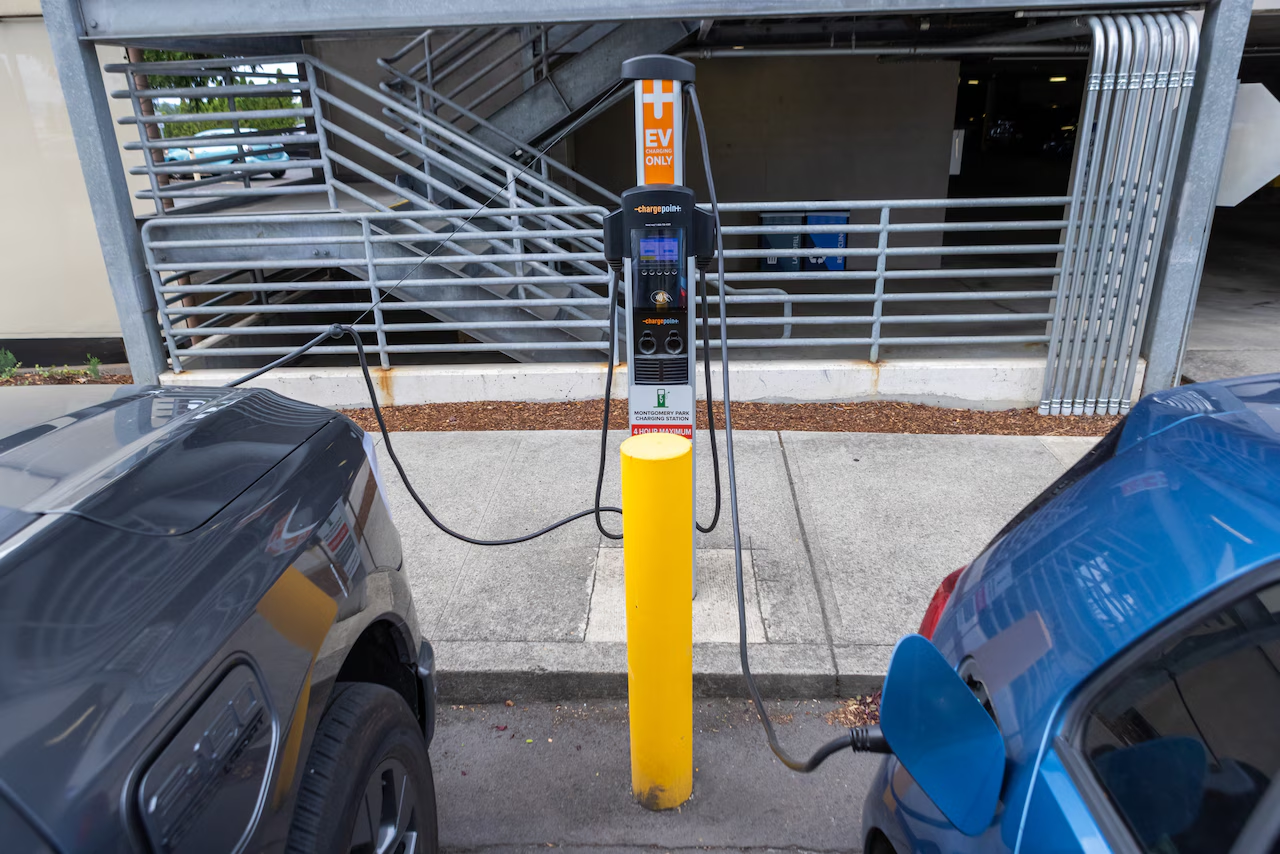SALEM, Ore. — A sweeping transportation bill designed to raise billions for Oregon’s roads and bridges has sparked backlash from environmental advocates, who warn it unfairly burdens owners of hybrid and electric vehicles.
House Bill 3991, set for a final vote in the Legislature on Wednesday, would raise an estimated $4.3 billion over the next decade. But critics argue it does so at the expense of drivers who have invested in cleaner cars — a move they say undermines Oregon’s climate goals.
How the Costs Add Up
Under the new structure, the typical owner of a hybrid that gets 48 miles per gallon or an electric vehicle (EV) would pay about $361 annually in registration fees and state taxes, assuming 12,000 miles of driving per year — the statewide average.
Also Read
By comparison, someone driving the same distance in a gas-powered vehicle that gets 30 miles per gallon would pay only $294 per year, according to an analysis by The Oregonian/OregonLive.
The disparity arises from a new “road usage charge” applied to hybrids and EVs, set at 2.3 cents per mile driven.
For those unwilling to enroll in the per-mile tracking program, there’s an opt-out flat fee of $340 annually, which raises the total yearly cost for registration and taxes to $425. That’s at least $131 more than the average driver of a 30-mpg gas car would pay.
Environmental Groups Push Back
For climate advocates, the timing could hardly be worse. The Legislature is weighing the bill just as a $7,500 federal EV tax credit is scheduled to expire under President Donald Trump’s “One Big, Beautiful Bill.”
“The signal Oregon is sending right now is, ‘Actually, we’re going to make EVs more expensive to own and drive,’” said Brett Morgan, policy director for Climate Solutions, which promotes clean energy across Oregon and Washington.
Jamie Pang, deputy director at the Oregon Just Transition Alliance, called the structure punitive. “It just overly penalizes hybrids and EVs,” she said.
Both Pang and Morgan stressed they are not opposed to EV and hybrid owners contributing more toward road maintenance but said the proposed rates go beyond fairness. “This is not parity — it’s a penalty,” Morgan wrote in testimony to lawmakers.
Who Pays More — and When
To be sure, the bill doesn’t always leave EV and hybrid drivers paying the highest share. Analysis shows:
-
Owners of gas-powered vehicles that average 20 miles per gallon will still pay more in combined registration, gas taxes, and usage charges than the average hybrid or EV owner, regardless of miles driven.
-
Drivers who log fewer than 3,000 miles per year in a hybrid or EV will generally pay less than owners of 30-mpg gas cars.
-
Title fees will vary slightly, with hybrids carrying a slightly higher cost than gas vehicles and EVs costing slightly less.
The bill phases in gradually. Existing EV owners will begin paying the per-mile charge on July 1, 2027. The charge extends to new EV owners starting Jan. 1, 2028, and to hybrid owners — including plug-in models — on July 1, 2028.
Currently, there are about 117,000 fully electric or plug-in hybrid vehicles registered in Oregon, making up less than 3% of the state’s fleet.
The State’s Funding Dilemma
Supporters of HB 3991 argue that EV and hybrid owners have historically paid less toward road maintenance because they buy little or no gas and therefore avoid fuel taxes. Meanwhile, the Oregon Department of Transportation (ODOT) faces a worsening budget shortfall as fuel efficiency rises and gas tax revenues decline.
To close the gap, the bill also raises the statewide gas tax from 40 cents per gallon to 46 cents. Many jurisdictions, including Multnomah and Washington counties and more than 30 cities, levy additional local gas taxes, while the federal government adds another 18 cents.
Democratic lawmakers frame the changes as necessary to ensure that all drivers, regardless of vehicle type, contribute fairly. “We have no choice but to modernize how we pay for our roads,” one sponsor said.
Public Reaction
Public testimony has revealed deep frustration. Of the more than 4,500 submissions lawmakers received, most opposed the tax structure. Many residents said they already struggle with the rising cost of living.
Some zeroed in on what they see as a contradiction in climate policy. Ellen Pfander of Creswell wrote:
“First we receive a tax break for buying an EV/Hybrid and now we are getting taxed for owning and driving them?!!! I guess I’ll trade it in and buy a huge polluting truck!!!”
Her comments reflect a broader concern that higher annual costs could discourage new buyers from switching to cleaner vehicles.
Looking Ahead
Environmental groups are urging lawmakers to revisit the bill in the 2026 short session or the 2027 long session to adjust the rate. Their proposal: align hybrid and EV costs with those paid by drivers of average gas-powered vehicles, such as the Toyota RAV4 or Subaru Crosstrek, both of which average about 30 mpg.
Advocates stress that Oregon must balance its urgent need for transportation revenue with the state’s long-term climate commitments.
“This is about fairness,” Pang said. “Yes, EV and hybrid owners should pay into the system. But they shouldn’t be punished for making cleaner choices that Oregon itself has been encouraging for years.”
Key Takeaway: While Oregon’s new transportation bill shores up billions for road maintenance, it risks sending the wrong message on climate policy — charging hybrid and EV owners more than many gas car drivers at a time when the state is trying to accelerate clean energy adoption.












